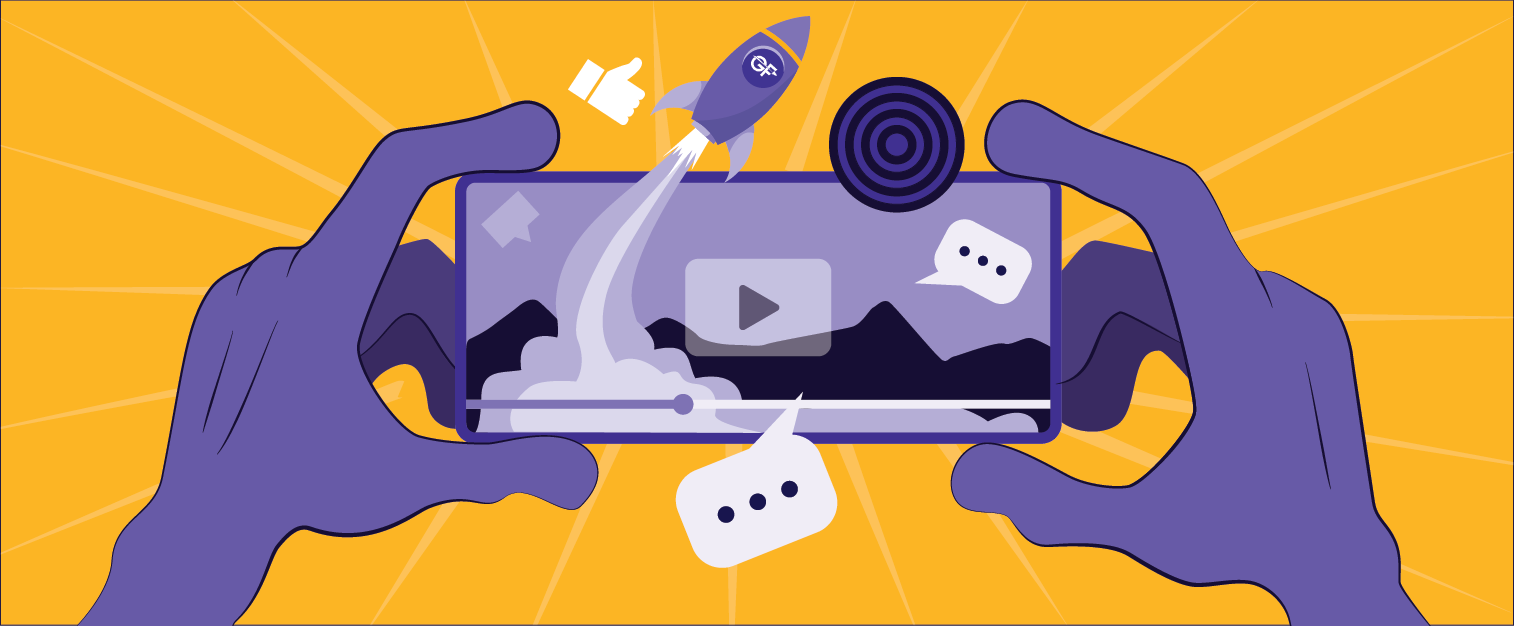Sending your data to our servers, please wait...





Oops... No results found.
Please try a different search phrase.
Resources 8 min read
A Beginner’s Guide to User-Generated Content
Written by Ayesha Renyard
Content Writer @ Galactic Fed
Expert reviewed by Dallin Porter
Marketing Director @ Galactic Fed
Published 27 Jan 2021
I’m reading a book called the Marketing Rebellion by Mark Schaeffer, and in the opening chapter, he shares a statistic that struck me. During the evaluation phase of a purchase, two-thirds of the touchpoints involve human-driven marketing activities—such as internet review sites, social media posts, and Youtube videos (McKinsey).
So two-thirds of your marketing…is not your marketing.
Let that sink in.
Since that 2009 study, more and more platforms have surfaced to support user-generated content (UGC), which refers to any content—text, videos, images, reviews, etc.—that is voluntarily created by individuals, fans, or consumers not associated with the brand (i.e., not an influencer).
Why is UGC important? Because it’s real, and it’s authentic. And as the McKinsey study suggests, in a world of many products and a sea of ads, people are looking to each other to navigate it all and make the right purchase.
It’s become one of the most sought-after marketing tools because of its simplicity and what it can achieve. So what exactly is this marketing tool that’s not actually your marketing but makes up two-thirds of your marketing? How does it work? What are the benefits? It’s quite the concept—and we’re here to help you unpack it.
As part of our Digital Marketing Series, this is your beginner’s guide to user-generated content.
Types of User-Generated Content
To leverage user-generated content, you gotta know where to source it. Here are a few types of UGC and where you could spot it in the wild.
- Social media content: User-generated content thrives on social media platforms because of how easily it can be viewed and shared. Most platforms also support image and video content—and let’s be real, when it comes to products, seeing is believing. Our recommendation is to research which platform your audience is on and join the party! Your presence and engagement will fuel their content creation.
- Reviews and testimonials: UGC encompasses customer reviews and testimonials, which are pretty darn important for your street cred. With influencer reviews, prospects know that they were paid to leave a review, which taints its authenticity—even if the influencers like your product!
And when it comes to making a purchase, people seek out reviews—a whopping 95%. Millennials, particularly, value online reviews. In fact, most trust them as much as personal recommendations. What we’re trying to say is, ask your customers for reviews!
- Online forums and discussion boards: Some consumers will start a thread to discuss all sorts of products and services. The most popular forum would be Reddit. You can find me in the subreddit r/fountainpens for “fountain pen enthusiasts.” (Love me a good pen.)
In these threads, you can find people asking for recommendations as well as giving recommendations. We suggest poking around on these forums to see if there’s any UGC for your brand. However, if there’s an embodiment of “going down a rabbit hole,” this would be it. It’s best to set aside a few hours for this research.
The Benefits of User-Generated Content
If we only had a 15-word limit, we’d leave you with that McKinsey finding—user-generated content has a huge influence on purchasing decisions! But because we have room to wiggle, here are some more reasons why you should leverage UGC:
- It acts as social proof: Social proof is the idea that consumers will adapt their behavior according to what other people are doing. So-and-so is jumping off a bridge? Sign me up.
UGC makes purchasing from a new brand less risky. When your prospects see someone else trusting your product or service, it breathes life into it. It’s no longer an intangible brand in a sea of many (or worse, a scam). It’s real (and recommended!) by a human.
Let’s use Galactic Fed as an example. Sure, I can tell you how great we are (and I will continue to do so), but reviews like these help validate our superpowers. (You didn’t just hear it from us!)
- It builds your content library: A lot of UGC are photos and videos. So what? This helps grow your content library. As long as you credit the user, you’re usually in the clear to repost their content. Work smarter, not harder!
- It grows your reach: Because you’re relying on your customers’ personal networks, UGC can also help you reach new audiences that may be hard to target through more traditional campaigns.
- It helps you stretch your budget: You know how much it costs to employ a content creator? In the USA, around $47,000. But if you have a lot of UGC content at your fingertips, you could put your money elsewhere—like a paid media campaign. (And our experts can help you stretch your dollars there too!)
- It saves you time: Creating content takes time. But if people are writing blog posts, creating video reviews, and taking stunning product photos for you, then you can spend your time optimizing this content. SEO is a great place to start—hear more about that here.
How to Inspire More UGC For Your Brand
Now that you know what UGC is and how it benefits your brand, you may be wondering how you can get more of it.
Sure, you can’t create it yourself, but you can turn your customers into fans and communities—which encourages more engagement and ultimately fuels more content creation.
Here are some ways to do that:
- Ask for reviews: Prompting customers to leave reviews is a simple tactic to incorporate into your marketing strategy to grow your UGC library.
If you’re struggling to get reviews, try offering an incentive, like receiving 10% off their next order. Or revisit the process of leaving a review. If it’s difficult or inconvenient to do so, they may opt-out—even if they like your product.
- Run contests on social media: Create contests that require customers to showcase your product or service in its best light. With a prize on the line, contests are a great way to generate a high volume of content while maintaining quality. The key is to make sure that the reward is enticing enough to participate. (So, y’know, maybe leave the pencils and magnets at home this time.)
- Leverage hashtags: To create a trackable UGC social media campaign, you gotta create a unique hashtag. With that being said, you’ll still want to choose a hashtag that reflects your brand, like Coca-Cola’s #ShareaCoke. It includes the brand name and asks for content that’s pretty darn easy to create—all you have to do is find a bottle with a name that holds personal meaning to you and snap a pic!
Source: Coca Cola United
- Recognize and reward UGC: Sometimes (most of the time), it’s not in the budget to run contests every week that gifts the winner a PS5. But that doesn’t mean you can’t make your customers feel special. For example, reposting content is an easy way to reward your customers’ behavior and encourage them to keep it up!
What’s Next?
User-generated content has many benefits that resonate with virtually every brand—it’s highly effective at growing reach and sales while keeping the workload and costs low. Do we need to say more?
UGC certainly has a place in your marketing—but it’s a bit tricky to source, isn’t it? If you’d like some guidance on building a UGC campaign, let’s set some goals together! As growth marketing experts, we’re all about seeing those results moving up and to the right.

Ayesha Renyard
Content Writer @ Galactic Fed



